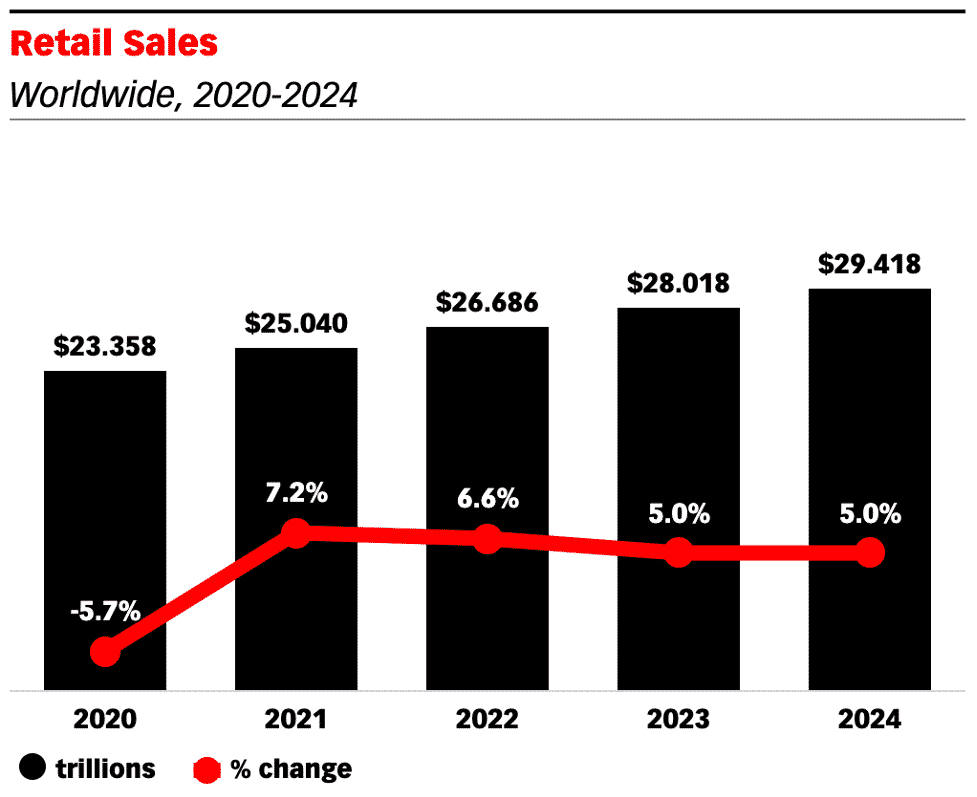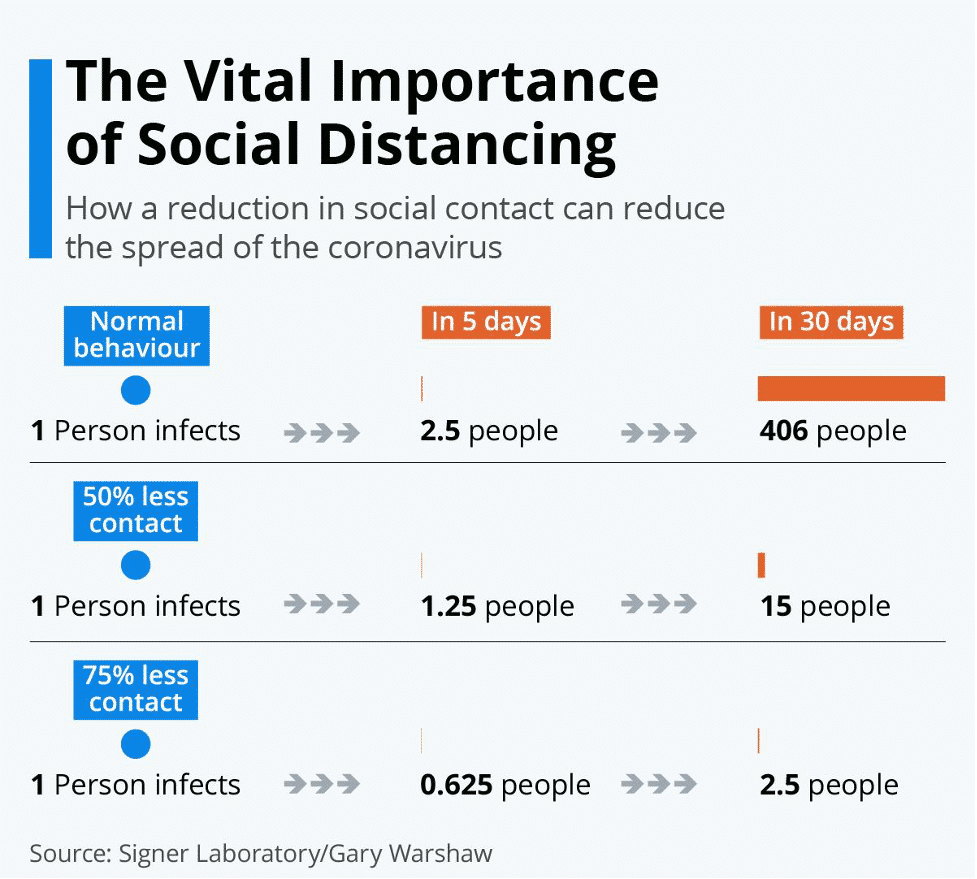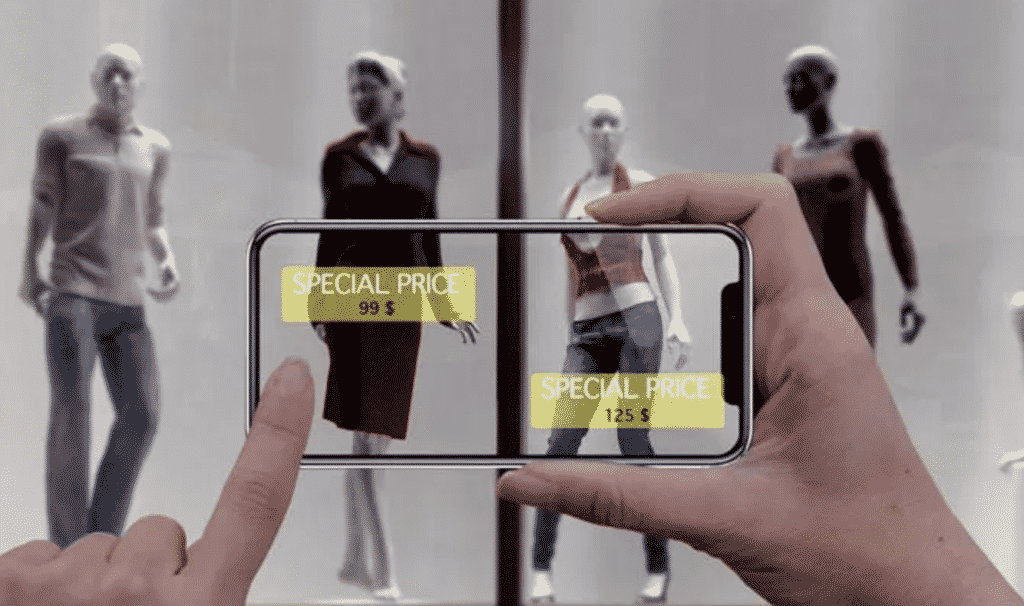Retail has been hard hit by the pandemic. As brick and mortar stores close to help prevent the spread of the virus, retail, primarily non-essential retail, have found it challenging to stay afloat. Luxury brands are amongst the most affected, with a prediction of the global luxury market shrinking to between 35%-39%. There is also a case of the pandemic affecting shoppers who have been left in financially challenging situations giving them little or no overflow income. Sales at top fashion house H&M declined by 18% to £16.3billion in 2020 compared to £20.3billion in 2019.

(Image Source: eMarketer)
However, the use of innovative technology has the possibility to help retail operate in a safer way which not only makes it safe for shoppers now but also in the future, preventing retail from having to close its doors again with the arrival of a new variant. Technology has taken centre stage through the pandemic and helped create a new normal without restrictions or limitations forced by the pandemic and lockdowns. For this reason, technology has accelerated far beyond its expectations and is the future. Consumer behaviour will undoubtedly have changed, and with fares surrounding the virus and new variants, a new normal will be born with the aid of technology.
Smart Technology
Today’s advances in technology have the capabilities to advance shopping and retail. Here’s a look at some of the intelligent technologies that can be implemented for a safer shopping experience.
Smart Cameras
Since the start of the pandemic and now having a more comprehensive understanding of the virus, wearing a mask has played a big part in helping to carry on with everyday tasks such as taking public transport and shopping.
In malls and shops, staff and customers are required to wear face coverings in indoor spaces and are encouraged where social distancing is not possible. Controlling staff and customers can be hard when carried out by humans. The possibility of missing people not wearing masks is high, especially if large numbers of people constantly come in and out of a store.
Smart cameras, like the ones used in the latest handsets can be used to identify those who are not wearing masks as well as using them to check body temperature. If the smart cameras pick up any relevant data, it can be used to deny access into the shop for the individuals.
Social Distancing Monitoring
Queuing for services and entering stores has been a big part of the pandemic. Maintaining social distancing remains paramount in order to help keep the virus at bay. Managing footfall for retailers is essential as it allows shoppers to preserve some level of social distancing within the store.

Smart monitoring sensors can help buildings manage occupancy levels. The sensor can relay real-time data back to building managers giving them vital metrics concerning overcrowding. This will help shops and malls take the appropriate preventive actions to abide by social distancing rules.
Clean Air
Ventilation is critical when considering opening retail in a safer manner, especially for enclosed spaces. Ventilation not only helps to filter the air, remove any pollutants and harmful air molecules such as the virus, it also helps to bring in fresh air that is filtered, moving stagnant air that continually keeps being breathed in. As we know, the virus is airborne, so air ventilation has become even more critical.
Smart air quality monitoring sensors could be a great way to help monitor the air and help clean dangerous particles from the air. For example, if the sensors are able to pick up a covid vaccine molecule in the air. It can quickly work on removing it from the air while pushing in newly filtered air into the enclosed space.
Overall, with the help of technology, opening of retail stores looks promising as it allows shops to open more safely. However, the costs that come with these technologies can be very high. With this in mind, there is a chance that some businesses will not have the money to put these types of sensors in place as well as, without them becoming government safety regulations, many businesses might not choose to use them.
However, as new variants continue to swipe across the globe for retail, the government will have to think about using smart technologies in place to stop the pandemic from affecting the economy any more.

